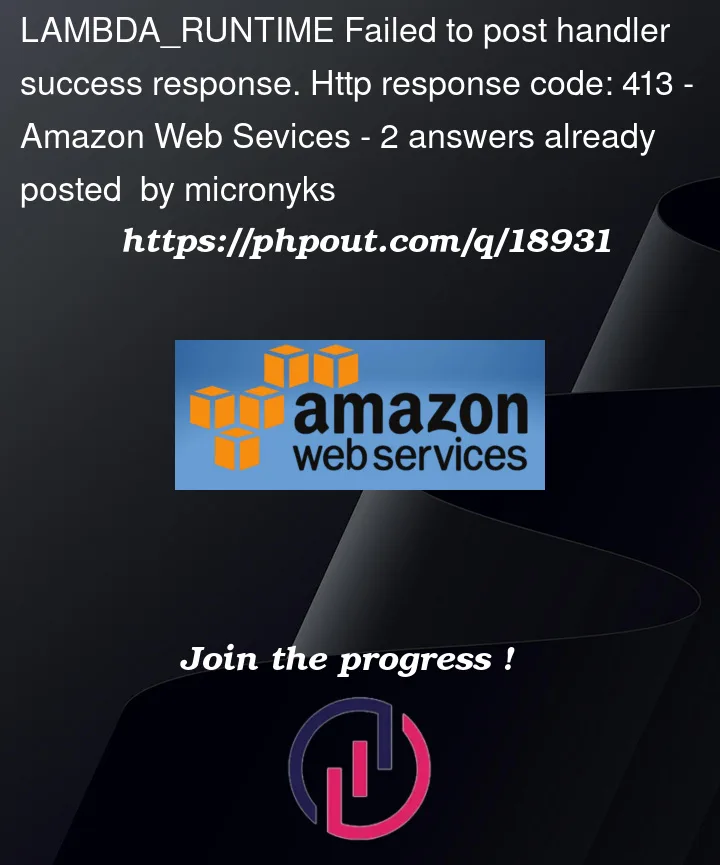I have node/express + serverless backend api which I deploy to Lambda function.
When I call an api, request goes to API gateway to lambda, lambda connects to S3, reads a large bin file, parses it and generates an output in JSON object.
The response JSON object size is around 8.55 MB (I verified using postman, running node/express code locally). Size can vary as per bin file size.
When I make an api request, it fails with the following msg in cloudwatch,
LAMBDA_RUNTIME Failed to post handler success response. Http response code: 413
I can’t/don’t want to change this pipeline : HTTP API Gateway + Lambda + S3.
What should I do to resolve the issue ?




2
Answers
the AWS lambda functions have hard limits for the sizes of the request and of the response payloads. These limits cannot be increased.
The limits are:
You can find additional information in the official documentation here:
https://docs.aws.amazon.com/lambda/latest/dg/gettingstarted-limits.html
You might have different solutions:
For the last solution, if you don’t want to make the JSON file visible to whole the world, you might consider using AWS Amplify in your client or/and AWS Cognito in order to give only an authorised user access to the file that he has just created.
As noted in other questions, API Gateway/Lambda has limits on on response sizes. From the discussion I read that latency is a concern additionally.
With these two requirements Lambda are mostly out of the question, as they need some time to start up (which can be lowered with provisioned concurrency) and do only have normal network connections (whereas EC2,EKS can have enhanced networking).
With this requirements it would be better (from AWS Point Of View) to move away from Lambda.
Looking further we could also question the application itself: